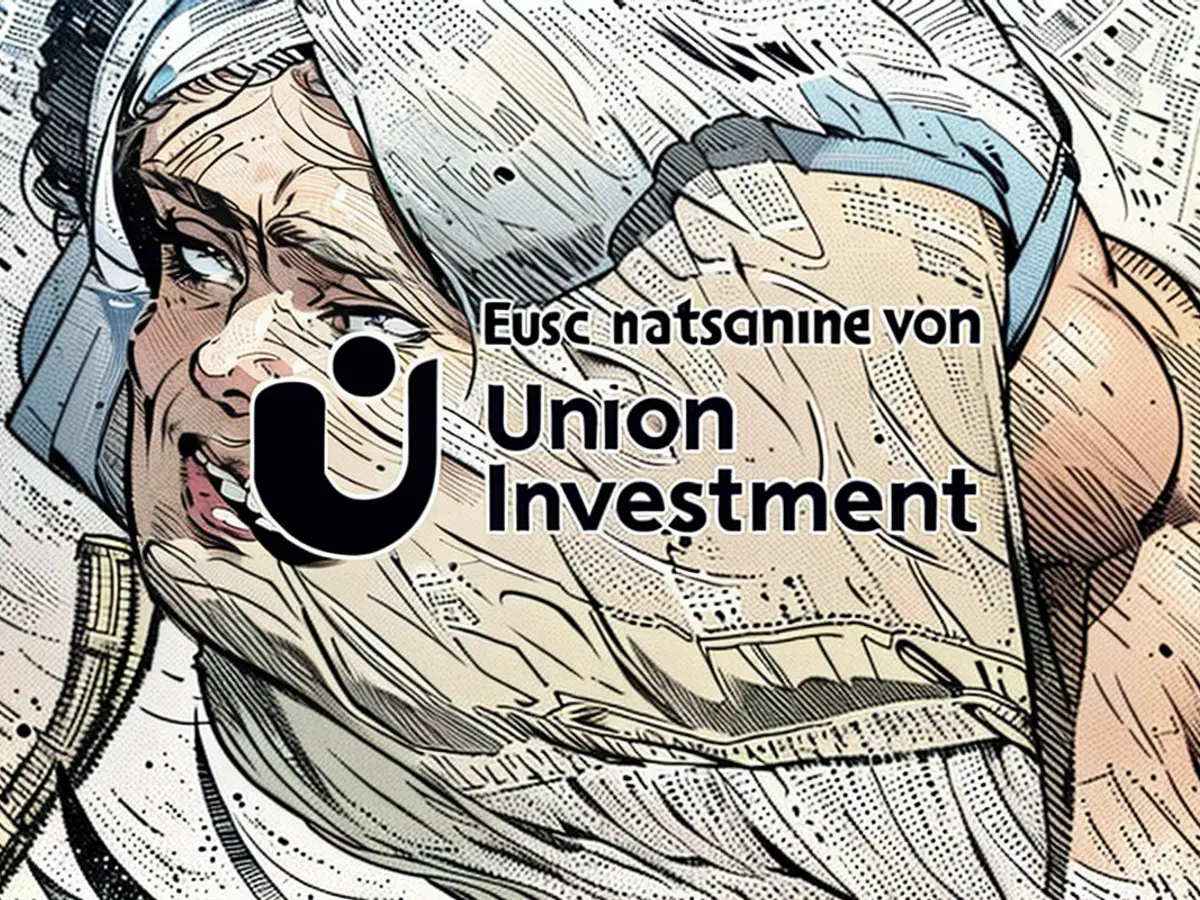Union Financial Investment Offers Sincere Apologies for Property Fund's Collapse
Many investors were taken aback by the collapse of the ZBI Immo Wohnen fund. Union Investment guarantees that they will recoup the losses by 2026, stating that "investing in residential property isn't a mistake."
The continued depreciation of the open real estate fund Uni Immo ZBI Wohnen continues to be a concern for the cooperative financial group. Cornelius Riese, CEO of DZ Bank, commented during the presentation of the institute's half-year figures that "it was the right fund at the wrong time." DZ Bank serves as the central bank for the cooperative banking sector and owns Union Investment through its holding.
Union Investment reduced the value of the ZBI Wohnen fund by 16.7 percent in June, presumably due to overpaying for residential real estate. The fund was acquired by Union Investment in 2017 as part of the takeover of the ZBI Central Boden Group Erlangen. Before the correction, the fund's volume was around 5 billion euros. Fund managers invested heavily from 2018 to 2022 when prices had already significantly increased. The unexpected escalation in interest rates caught them off guard. In addition, the vacancy rate is high at 7%, many properties are in less popular locations and are also old.
"Investing in residential property isn't a mistake, even from a societal perspective," said Riese. However, he acknowledged that the timing was poor. "These investments were made in 2017, at 'a particularly unfavorable time'," he added.
He urged the cooperative financial group to "critically examine itself." Various issues, such as the precarious financial situation of listed agricultural trader Baywa and problematic loans from the VR-Bank Bad Salzungen-Schmalkalden, among others to football clubs and red-light real estate, have made headlines recently.
"I'm sorry"
Union Investment CEO Hans Joachim Reinke also expressed remorse for the devaluation of the ZBI fund. "I'm sorry, particularly to the private investors and the involved banks," he told the "Börsen-Zeitung." Reinke explained the reasons behind the massive loss in value, despite "no operational issues." "We managed to increase rents in the invested properties and reduce vacancies," he explained.
According to Reinke, the rapid increase in interest rates and the highest inflation since 1949 were the initial problems. "This was accompanied by rising construction costs and a complete freeze on residential property transactions," said the Union CEO. In the first phase, the rapid rise in interest rates, a result of the corona pandemic and the Russian war against Ukraine, led to a depreciation of the real estate in the funds. The higher the market interest rate and the so-called property interest, the more future earnings are discounted, and thus are worth less in the present.
Reinke stated that a wave of fund cancellations began in January due to investor dissatisfaction and the availability of more attractive returns elsewhere. According to the industry association BVI, a total of 3.1 billion euros net flowed out of open real estate funds in the eleven months to the end of June, with 2.1 billion flowing out between January and June.
Investors must cancel open real estate funds and receive their money a year later. During this period, the fund company must raise liquidity, either through new investors or the sale of real estate. This regulation aims to prevent the funds from freezing like they did during the global financial crisis and investors from being unable to withdraw their money for years. Prior to this regulation, the funds were tradable daily.
Union Investment remains a profitable entity
"There was no corresponding new business, and the opportunities for raising external capital were limited. Therefore, Uni Immo Immobilien had to be sold," said Reinke to the "Börsen-Zeitung." Interested buyers offered discounts of 25 to 30% on the property value, which the funds were not allowed to do for regulatory reasons. As a result, according to Reinke, the devaluation of the fund shares occurred. However, the losses can be offset by 2026, with initial sales taking place above market value.
Despite the problems with the ZBI fund, Union Investment continues to be a profitable entity within the DZ Bank group. The fund company is close to reaching the 500 billion euro mark in assets under management and earned 616 million euros before taxes in the first half of the year, a 40% increase compared to the previous year.
The entire holding earned 1.71 billion euros before taxes from January to June, a decrease of 11.4% compared to the previous year. The banking and business alliance (down 45.1%), the R&V insurance company (down 20.8%), and the consumer insurer Teambank (down 66%) earned significantly less.
This text was first published on capital.de
The devaluation of the ZBI Wohnen fund, which Union Investment acquired for residential real estate, has prompted criticism. Despite this, Riese, the CEO of DZ Bank, stated, "investing in residential property isn't a mistake, even from a societal perspective."
Despite the challenges faced by the ZBI Wohnen fund, Union Investment continues to thrive, with a net asset value of around 500 billion euros and earnings of 616 million euros in the first half of the year.








